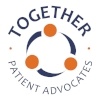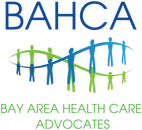
If you are diagnosed with dementia, it's difficult to know what to do next. Let's take a look at some information and resources that can help you and your loved ones now and in the future.
Emotions
Coming to terms with a dementia diagnosis can involve a range of emotions including denial, shock, and grief. Some people experience feelings of fear, loss, or relief at finally having diagnosis.
Your feelings will likely change from day-to-day or even moment-to-moment, sometimes moving back and forth. Having tools to understand and cope with them can be useful. Here are some tips from the Alzheimer-Europe organization :
- You may need some time alone to come to terms with the diagnosis, but don’t become isolated
- Have someone close to you who you can turn to as you go through the different emotions
- Give yourself time to adjust; this will help you move past feelings of denial so you can start planning for your future
- There is no right or wrong way to feel
Communicating Your Diagnosis
Even as you’re grappling with your diagnosis, you know you’ll need to tell family and friends. But how? The Alzheimer’s Association says, “Part of living with Alzheimer’s is adjusting to your ‘new normal’ and helping friends and family do the same.”
The Alzheimer Society of Canada recommends you start with the people you’re closest to. Be honest in describing your feelings and describing the changes you’re experiencing and are likely to experience.
In addition, accept offers of help – both practical and emotional. Since people won’t know what you need, be prepared to give them something specific they can do for you. You may not need help now, but keep a list of people who are willing to help. When the time comes, don’t hesitate to call on them.
Here are some additional practical suggestions from the Alzheimer’s Association on how to tell your spouse or partner, children, grandchildren, and friends.
Treatment
While there is no cure for most types of dementia, your doctor may prescribe medications that temporarily improve your symptoms or slow the progression of symptoms. She may also recommend clinical trials.
You may be wondering about the effectiveness of over-the-counter supplements and other products that claim to prevent or reduce the severity of dementia. The Alzheimer’s Association provides a summary analysis of research conducted on several such products. You will see that most claims are scientifically unfounded.
Similarly, the Mayo Clinic advises you “Use caution when considering taking dietary supplements, vitamins or herbal remedies, especially if you're taking other medications. These remedies aren't regulated, and claims about their benefits aren't always based on scientific research.” Talk with your doctor before using any alternative remedies.
Short-Term Planning
Even without the use of alternative remedies, there are things you can do to help yourself. Here is a list of several options from the Alzheimer’s Association, Alzheimer-Europe, and United Kingdom’s National Health Service:
- Maintain social contact
- Do things that interest you like reading a good book or watching a movie
- Keep up your hobbies; such as, writing, gardening or painting. These have the added benefit of reducing your stress
- Eat healthy foods
- Exercise regularly
- Listen to your body – take breaks when you find yourself becoming mentally or physically tired
- Organize your important papers so they’re easy to find and easy to use. Show your loved one or a close friend where you keep these documents.
- Develop a new routine to accommodate what you can and cannot do
- Use sticky-notes, calendars, lists or anything else that will help you keep track of important names and numbers, dates, and things to do
Planning for the Future
Planning for your future is an important part of diagnosis. It can be empowering to make your decisions while in the early stages of the disease rather than having decisions made for you in later stages. Documenting your wishes also helps your loved ones and/or caregiver ensure your wishes are followed.
The National Institutes of Health has a two-page checklist called “Now What.” You’ll find resources for your next steps in multiple areas such as support, financial planning, and staying safe. Download the checklist in a pdf format or use the on-line version, with links to the recommended resources.
The Alzheimer’s Association also provides resources, including checklists, worksheets, and questions to ask professionals for planning in the following areas:
Caregiver Support
If you are a caregiver for someone with dementia, you need to take care of yourself, too. The Alzheimer’s Association has support tailored to your needs. Caregiver Health provides an abundance of information from helping you stay healthy to dealing with your grief and loss. In the Sacramento area, Del Oro Resource Center, provides many free caregiver supports, including respite care.
Finally, know you do not need to go through this alone. In addition to the resources I’ve mentioned, there are Alzheimer's Association Chapters across the country, guides to online events, and a library of online resources available to you and your loved ones. A patient advocate or geriatric care manager with experience helping clients with dementia can be an invaluable resource as well and can connect you with local resources



.gif?width=200&name=NAHAC-Member-Badge200x112+(1).gif)


